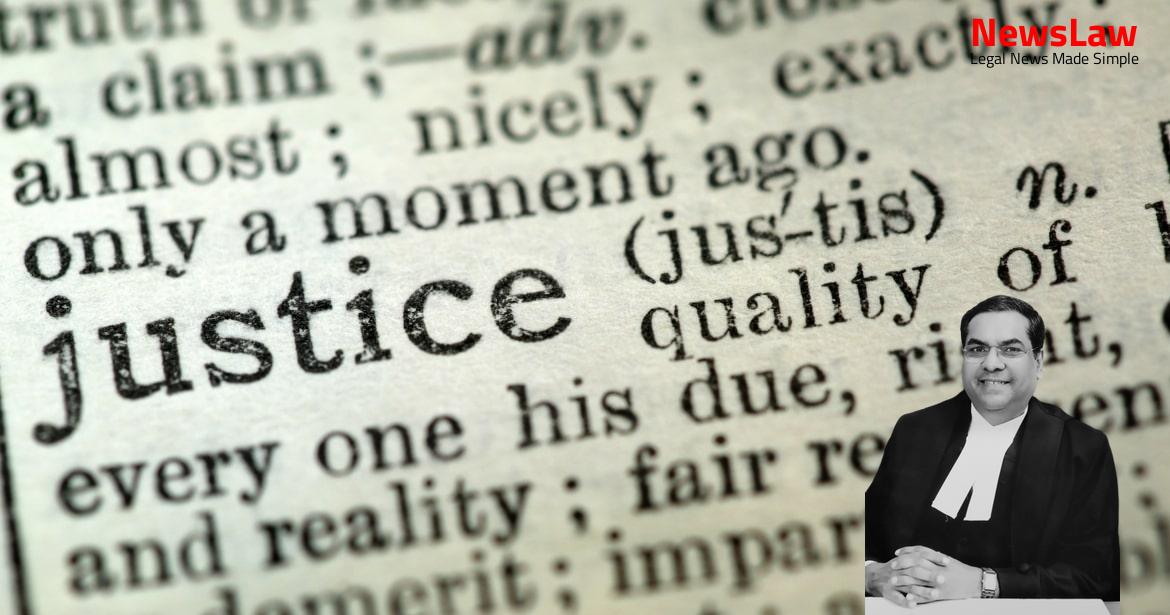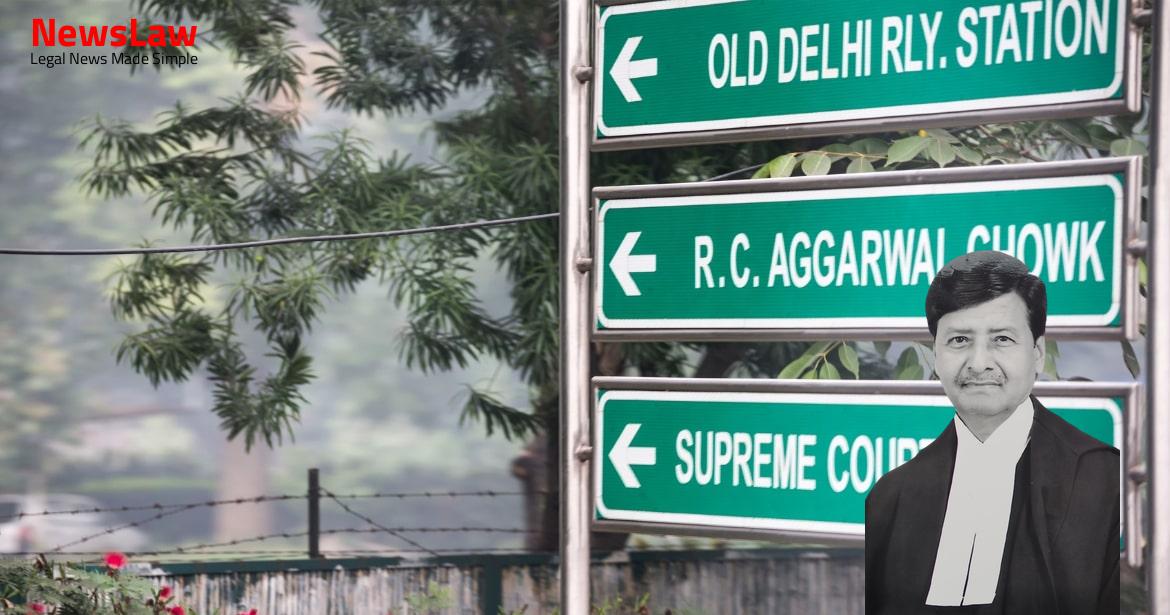This blog delves into the legal nuances and court perspectives involved in a plot allotment dispute case. The focus is on the detailed legal analysis conducted by the court in determining the outcome of the case. Stay tuned to understand the complexities of the case and the significance of legal interpretation in such matters.
Facts
- The Noida Authority provided plots measuring up to 4000 sq. mtr. in Phase II at ₹ 5550/- per sq. mtr. and in Phase III at ₹ 5750/- per sq. mtr.
- Applicants needed to furnish a project report, background details of promoters, audited accounts, and other relevant details for Phase III plots.
- Application forms for registration of available plots required a payment of ₹ 5,000/- at a designated bank.
- The club applied for two plots with the Noida Authority and was directed to re-deposit the registration amount of ₹ 8 lakhs each for their two applications within a month.
- Allotment was to be based on interviews by a screening committee about project details.
- A processing fee of ₹ 20,000/- and registration money of ₹ 8 lakhs for Phase II plots and ₹ 10 lakhs for Phase III plots were required.
- The club fulfilled all scheme requirements, paid fees, deposited documents, and applied for allotment.
- An application for modification was dismissed on 01.10.2020, leading to the subject matter of the appeal.
- Noida argued that the club had no basis for allotment under the discontinued scheme.
- During the High Court petition, Noida launched a new scheme in 2013, under which the club applied, leading to an allotment in 2014.
- Noida later decided to terminate the scheme, making the club approach the High Court with complaints of non-allotment.
- The High Court clarified that non-compliance with the main judgment would require the CEO of Noida to be present in Court.
- New plots were allotted in accordance with the new scheme, with two other applicants receiving the plots.
- A total of 12 such plots were identified.
- Noida’s failure to call the club’s representative for an interview was deemed unjustified by the Court.
- The Club initiated contempt proceedings for non-compliance with the original judgment.
- The Club’s application was deemed eligible and taken on record during the contempt proceedings.
- The Review Petition was rejected by the High Court.
- Noida did not dispute that some plots remained unallotted in the scheme.
- The writ petitioner was provided with a list of plots to exercise his option, in accordance with the new scheme issued in January 2020.
Also Read: Balancing Power and Transparency: Electoral Bonds Struck Down, Disclosure Mandated
Arguments
- The petitioner argued that the judgment was based on a false statement made by OSD Shri N.K. Singh in his affidavit, causing prejudice to NOIDA.
- The club had been allotted a 4000 square meter plot in 2014 and the old scheme mentioned in the judgment was no longer in existence in 2020.
- Allotment of plots is done through draws and not interviews as claimed by the club.
- The club did not disclose all facts and misled the court by not providing information on the availability of plots initially.
- NOIDA constantly creates and allots new plots under different schemes.
- The officer in question facilitated the transfer of the club’s plot to another entity, which was unauthorized.
- The club failed in the draw of lots for plots, and the closure of the 2009-2010 scheme was recently discovered during due diligence by NOIDA.
- The High Court’s direction to reinstate the club’s applications was based on incomplete pleadings and lacked the necessary due diligence by NOIDA.
- There were in fact no plots remaining under the old scheme at the time of the judgment.
- The club only had the right to be considered under the current scheme, not a guaranteed plot allotment.
- Mr. Salman Khurshid, representing the club, argued against denying relief under Article 226 as suppression of information was intentional and facilitated by Mr. N.K. Singh.
- It was emphasized that the impugned judgment and the High Court’s review judgment should not be disturbed.
- NOIDA did not provide a reason for closing the scheme or overlooking the club’s application, nor did it call the club’s representative for an interview.
- The club was not required to disclose previous applications under any other scheme, and NOIDA unilaterally treated the application as under the 2020 policy.
- The impugned judgment had to be interpreted to mean the club’s application should be processed under the 2009-10 scheme, where an application had already been made and entertained.
- The club argued that the charge of suppressing information was unwarranted and that its application should have been considered under the old scheme as per the intent of the judgment.
- The conduct of NOIDA in not calling the club’s representative for an interview and evaluating the application accordingly was deemed arbitrary and called for an adverse order.
Also Read: Recall of Resolution Plan Approval: Legal Analysis
Analysis
- The club was allotted a plot in 2014 and paid substantial amounts for it.
- Contempt proceedings for willful non-compliance were justified due to the club’s actions.
- The club claimed that its application had to be dealt with based on the old scheme that ended in 2012, but the corporation decided based on the amended rules.
- The selection of an allottee does not guarantee legal right to allotment at a specific price.
- Allotment is based on draw of lots, not interviews, as per the prevailing scheme.
- Noida had the authority to determine how applications are to be dealt with under the scheme.
- The terms of the old scheme are no longer in force, and current building plans must comply with the statutory bye-laws published on 30.4.1988.
- Building regulations mentioned in brochures are subject to revision based on various factors like layout and construction costs.
- Builders can benefit from amended regulations if they are more favorable to them.
- Submission of building plans does not create a vested right unless expressly sanctioned by the authorities.
- Old rules cannot be applied if new rules are in place for considering applications for building sanctions.
- Application for allotment does not guarantee a legal or equitable right to allotment of a plot.
- Building plans can only be sanctioned based on the regulations existing at the time of the sanctioning.
- Public authorities like D.D.A. may resort to drawing lots for identifying allottees due to more applicants than available flats.
- The fact of the club acquiring an industrial unit post filing the writ petition in 2013 was not disclosed initially but should have been disclosed during the proceedings.
- State agencies provide industrial units at reasonable prices and the fact that the club eventually secured a plot is relevant.
- Failure to disclose these facts disentitled the club to any relief as the jurisdiction invoked is equitable and discretionary.
Decision
- Appeals by Noida allowed
- Impugned judgment and orders of the High Court set aside
- Municipal corporation required to decide application for sanction in a time-bound manner
Case Title: RITU MAHESHWARI Vs. M/S PROMOTIONAL CLUB (2022 INSC 513)
Case Number: C.A. No.-003616-003618 / 2022



